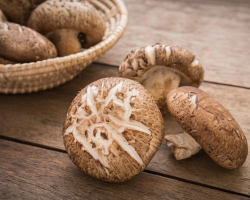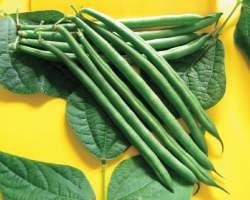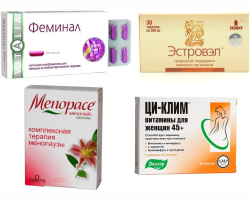In this article you will read a lot of useful information about dry cough and wet, and also find out what is the difference.
Content
- The causes of dry cough
- Dry coughing features: signs
- Causes of wet cough
- Features of moist cough: signs
- Dry and wet cough - differences in adults in symptoms: sputum, pain, strong, night cough, temperature
- Symptoms of dry and wet cough in a child: how to distinguish?
- How to treat at home a wet and dry cough in a child and adult: folk and medication
- What cough with coronavirus - dry or wet?
- Cough prevention: what to do?
- Video: Which tool is best from coughing? Dr. Komarovsky
It often happens that a person cannot distinguish what kind of cough he has - dry or humid. Without this, it is impossible to start treatment. In addition, even if you consult a doctor, he may ask which cough and you must explain that the doctor was able to prescribe adequate treatment. After reading this article, you will learn how to independently distinguish dry cough from wet in symptoms and sensations. Read further.
The causes of dry cough

Any cough is a symptom of a disease. Dry cough can appear both in adults and in children. Its causes may be such pathologies:
- Laryngitis -Due to the irritation of the mucous membrane of the throat, a dry cough appears. The patient feels a perspiration and a desire to cough.
- Tracheitis - There are real bouts of coughing, which are difficult to stop. Each new attack brings a new cough pain. Patients note that it feels like a cough is coming from the inside, turning everything out.
- Bronchitis - At the beginning of the disease, it is precisely the dry cough. There is a reaction of the body to inflammation. The temperature can also rise and shortness of breath appears.
- Asthma - In this case, you do not need to ignore the cough, as signs of suffocation may appear from the fact that the breathing passes will be closed. Astmatik should always have the necessary drugs with them.
- Inhalation of harmful substances - Often in cities in which there are many metallurgical or chemical plants, you can observe such a picture when a person begins to cough, trying to get rid of harmful particles that have fallen into the upper respiratory tract. This occurs during emission of waste from chimney pipes of factories or other sources.
- The presence of a foreign body in the respiratory tract - The body will try to cleanse himself from what prevents the lungs from breathing and therefore a dry cough will appear.
- Infectious pathology, affecting the mucous membrane of the larynx and nasal passages - causes a sore and desire to clench.
- The presence of benign or malignant education in the lungs.
Important: If you have a dry cough, consult a doctor as soon as possible. Perhaps you are demanding immediate treatment.
Dry coughing features: signs

Dry cough almost always appears at the initial stage of any disease associated with respiratory tract. If it is not treated, then it goes into the stage of wet, with the presence of sputum. There are several features of this type of cough. Here are its signs:
- Manifests itself in the form of seizures - It starts sharply and also ends quickly. It can be compared with the dog's bark.
- Manifestations begin so suddenlyWhat seems to be as if a person is trying to cope after a foreign body entering the lungs.
- In terms of duration, such an attack is short - A few minutes, but it seems that it is difficult for a person to breathe.
- It is difficult to fall asleep with such a cough at night.
- Can provoke a gag reflex, since it is directly related to coughing.
- Sputum compartments are not observed.
- The patient does not get easier Even after the attack is over.
- After the end of the attack Everything inside in the chest area can hurt, since the muscles and bronchi were continuously declined for several minutes.
Many people, focusing on such signs, can already determine in themselves whether sputum is separated or not. The doctor may also ask at the appointment to cough to understand what kind of coughing is a person.
Causes of wet cough

There are many reasons for the appearance of wet cough. More often it indicates the initial stage of recovery, since sputum begins to separate in the bronchi, which means that the body is fighting infection. These are the main reasons for the appearance of wet cough:
- Laryngitis in recovery - A person feels a craving for clenching. After that, he gets better. Wet cough with laryngitis is very important, especially with a hoarse voice.
- Bronchitis - During this pathology, the cough also passes from the dry stage to the moist at the recovery stage. There are fewer seizures, relief appears. The processing process brings relief.
- Pneumonia (pneumonia) - During this pathology, sputum in color will be similar to rust.
- Light abscess - There is a purulent component in sputum.
There are many causes of wet cough. Sometimes he appears during a runny nose. The mucus flows from the nasopharynx and accumulates in the larynx. The body will be cleared with a cough that will be wet.
Features of moist cough: signs

The peculiarity of wet coughing is that it is considered productive, therefore it brings the patient relief and clearly visible the result of a cough reflex. The signs of this type of cough should include the following:
- After an attack, a person feels in his mouth the presence of mucus that came out of the bronchi.
- There are no pain during the reflex.
- Before starting the attack, there is a mucus that you want to pump out.
- The wheezing is heard - especially during sleep or in a calm state.
- Shortness may appear.
- Sometimes body temperature rises. This indicates the presence of mucus in the bronchi.
The wet cough is simply distinguished from dry, as it does not last long and passes without seizures.
Dry and wet cough - differences in adults in symptoms: sputum, pain, severe, night cough, temperature

According to the above signs, you can simply distinguish these two types of cough. But there is a symptoms that allows adults to immediately understand - a dry or wet cough in a person. Symptoms are presented in the form of a table to make it easier to distinguish:
| Dry unproductive reflex | Symptoms according to the humid type of cough |
| The mucus does not form | Mucus appears in different volumes, depending on the disease and its stage |
| Sputum does not leave | The presence of bronchial secrets is observed |
|
Wheezing, discomfort, shortness of breath |
|
|
| Observed for 2-14 days | Worries at least a month, sometimes longer |
| There may not be temperatures | The temperature often appears due to the presence of mucus |
Advice: Do not forget to follow all the doctor’s recommendations during treatment. So you will come to recovery faster.
Symptoms of dry and wet cough in a child: how to distinguish?

Many parents when appearing cough in a child, cannot be distinguished, these are symptoms of dry or humid cough. In fact, it is simple to do it if you know the symptoms of data of reflex attacks in children. Kids 0 to 6 years old They cannot explain their sensations during a cough attack. Therefore, there is a technology for determining. The doctor does this with a phonondoscope. The parent can do this:
- Press your ear to the baby's chest
- Listen to the sound made when inhale and exhale the crumbs
Ask the baby to breathe in full mouth with an open mouth. If gurgling or wheezing is heard, then the cough is wet. If such sounds are absent, then the cough is dry.
Important: In children, it is worth considering the physiological factor of cough. When he can just indulge. But it may be such that a foreign object fell into the respiratory tract. In any case, you need a doctor’s consultation.
With viral pathologies or infections, inflammation develops in the larynx. But the child cannot explain his sensations. Therefore, parents should pay attention to the following:
- The kid asks to drink often
- There is almost no saliva, it’s even difficult for a child to talk because of this
- Constantly capricious
- Attacks occur on an increase in
- Vomiting reflex during cough
Only proper treatment will help to get rid of the baby from such unpleasant symptoms. The main thing is to transfer dry cough into a productive one in order to alleviate the condition. After that, treatment helps to get rid of inflammation and remove sputum from the body.
How to treat at home a wet and dry cough in a child and adult: folk and medication

Important: do not self -medicate! Only the doctor can prescribe adequate therapy, which will lead to recovery.
Before starting treatment, it is necessary to accurately determine - wet or dry cough. Only after that can the KM treatment be proceeded, which will be based on taking medications and folk remedies. It is worth noting that treatment in a child and adult will be approximately the same, only the dosage differs.
Dry cough therapy:
- Mucolytic preparations - help to speed up the process of transition of dry cough into wet. They also dilute sputum.
- Antitratus agents - stopping cough syndrome. It is necessary to facilitate the condition.
- Combined medicines - dilute and remove sputum, removing inflammation, improving well -being and filling up the deficiency of vitamins.
Wet coughing therapy:
- It is performed using the use of expectorants. Such funds help to remove sputum from the bronchi, and restore their normal work: Bromhexin, bronchosan, flitteck, fluimucil. More about what Preparations can be used from coughing, read here.
- If the patient has simultaneous dry and humid cough, then combined drugs are prescribed: Dr. MOM, Joset, Stodal, Flavamed.
In addition to medications, you can use treatment with folk remedies:
Such drugs consist of natural ingredients, so they can even be given to children. But, before using such treatment, you need to consult a doctor.
What cough with coronavirus - dry or wet?

Coronavirus - a dangerous disease, which can occur, as in a mild form with symptoms ordinary flu, and in severe - atypical pneumonia. Many people, in particular, children and young healthy people can transfer this virus without any symptoms, as they say - on their feet. They will not even notice that they were ill with this virus. It is especially terrible for older people who already have poor health and have chronic diseases associated with lungs and heart.
It is known that the main symptoms of a new virus are a cough, high temperature. Therefore, people often wonder: what coughing in coronavirus - dry or humid? According to experts, that in this form of the virus, a dry cough develops first. It is important to start therapy in a timely manner in order to make a cough productive. Otherwise, sputum will settle in the bronchi and inflammation of the lungs will begin. Therefore, recommendations at the first signs of a viral infection are the following:
- Bed rest.
- Drink a lot of liquids. Moreover, it does not matter what it will be-store juices, coca-coola, tea or simple water. The main thing is to drink.
- Ventify the room. It is better, of course, if the patient leaves the room at this time. But, if this is impossible, since he feels bad, then cover it with a blanket and open the window for several minutes.
- Do not overload the body with heavy foods. If you do not want to eat, then you do not need to eat porridge, meat and so on. The body needs glucose to make up for energy, so drink juices, sweet compotes, eat berries and fruits from these compotes and so on. Easily digestible food is what is needed when the body is sick.
The doctor will give other important recommendations to you. Do everything that he advises, and then you can overcome this ailment, and prevent complications. Read more about influenza complications read this article.
Cough prevention: what to do?

Prevention will help reduce the risk of cough syndrome. This is what you need to do for this:
- Timely treat the cold
- Do not allow cooling
- Eat fully
- Do harden the body
- Use vitamins
- Regularly undergo preventive examinations, do fg
- Refuse smoking
- Go in for sports
- Annually, carry out vaccination from influenza
- Observe personal hygiene, wash your hands more often
A cough can appear in both adults and children. In order to prevent the transition of pathology into a more complicated form, consult a doctor in a timely manner for advice. Especially if something bothers you, related to health. Avoid self -medication and use of dubious means. Good luck!
Video: Which tool is best from coughing? Dr. Komarovsky
Read on the topic:








In any case, if the cough is strong and does not pass for a long time, then the doctor is mandatory. I immediately try to start treating, so as not to launch, I drink a lot of warm liquid, I drink a lot of warm fluids, the syrup OPVIC BPONXO likes the thyme, it helps to remove the coughing and make it productive, and it is great that the composition is natural.